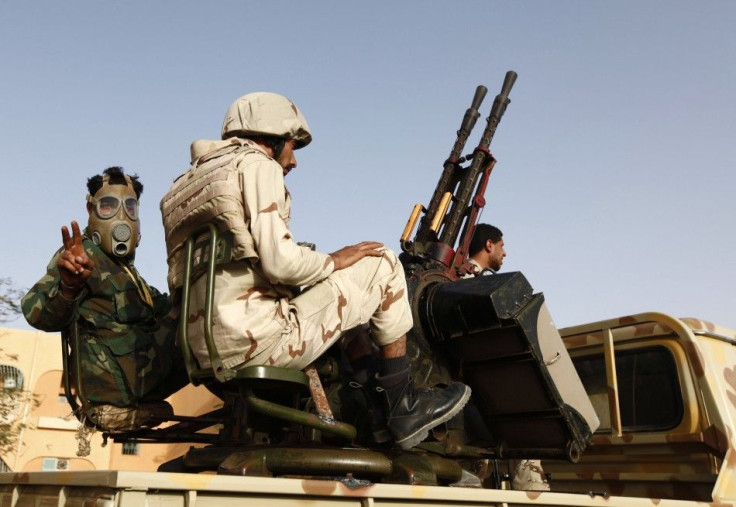What's Happening In Libya? Chaos Follows The Civil War
ANALYSIS

At the end of the revolution that overthrew Moammar Gadhafi last year, Libya's transitional government -- the National Transitional Council -- appeared poised to usher in a new era of peace and democracy in a country dominated by a totalitarian regime for 42 years.
But in the past few months, Libya has descended into tribal warfare and clashes among militias vying in a power vacuum.
In the past week alone, nearly 150 people have been killed and 400 wounded in clashes in the oasis region of Sabha.
The city of Sabha was notably one of Gadhafi's strongholds during the civil war that began in February 2011. NTC fighters didn't take control of the city until a month before the conflict ended in October, and the current combatants fall along the same lines as those who battled each other seven months ago.
Now, the Sabha region's Arab tribes, who were purportedly loyal to the Gadhafi era regime, are fighting the black African Tabu tribe. Armed with mortars, automatic rifles and rockets, combatants battled in city streets. The Tabus had fought against Gadhafi, but the tribe has declared that it will form its own state if needed if Tripoli doesn't protect them from genocide, according to the Associated Press.
Libya's transitional Prime Minister Abdurrahim El-Keib visited Sabha on Sunday and played down the recent violence. The two sides agreed to a tenuous ceasefire, but ethnic tensions remain palpable. Additionally, the military has taken control of the city's airport.
Every Libyan is important to us. We're going to take care of them like we do take care of any other Libyan, like our brothers and sisters, Keib told Reuters. This problem has a historical background ... The past regime has used and abused this problem.
The NTC's fighters have disintegrated into a number of armed factions. The government still has an army and a national police force, but both are diminished in size, and the government has allied itself with a number of militias in an attempt to keep the country from collapsing.
Libya was flooded with weapons during the civil war, many of them confiscated from Gadhafi's former storehouses. Rebels are still armed and using force to exert their influence across the country, including in the capital of Tripoli. Some of them control the airports, others specific neighborhoods and some the city's Grand Hotel. Looting and violence are reportedly rampant.
The Washington Post described some of the country's militiamen as intoxicated and most of them unemployed, but still they control wide swaths of Tripoli and Libya as a whole.
Everything here is screwed up; we know that, Sadat El-Badri, deputy chairman of the Tripoli Local Council, told the publication.
We went from complete dictatorship to complete freedom in one step, and everyone is doing just exactly what they want.
Fighting also broke out on Monday between the neighboring towns of Ragdalein and Zwara, which sit near Libya's border with Tunisia. Warriors from Ragdalein reportedly took 34 hostages from Zwara over the weekend as retribution for frequent attacks and thefts. The Zwara tribe responded in kind, followed by clashes with automatic weapons.
During the civil war, the village of Ragdalein was a stopping point for Gadhafi loyalists, while its neighbor was under rebel control.
It is critical that the government and all sides take steps to further de-escalate the situation and address the underlying causes of this recent fighting, Nasser al-Manaa, the Libyan transitional government spokesman, told CNN.
© Copyright IBTimes 2025. All rights reserved.





















